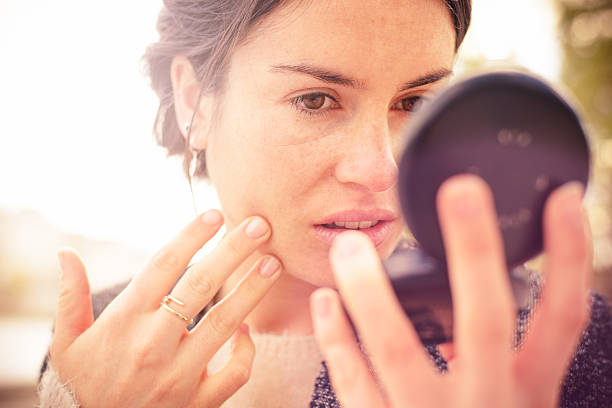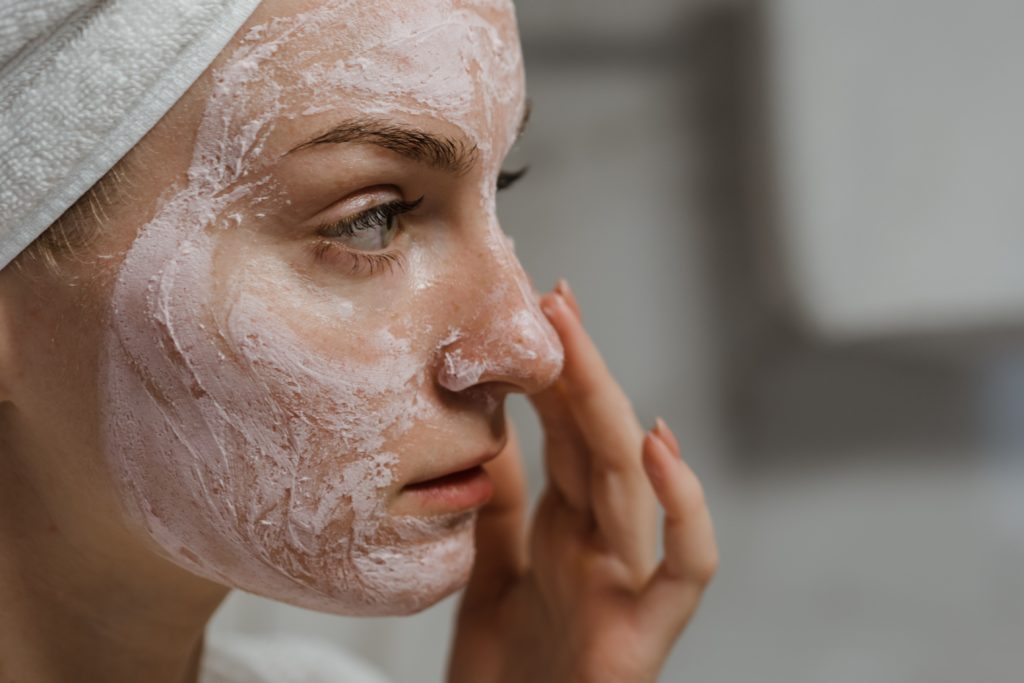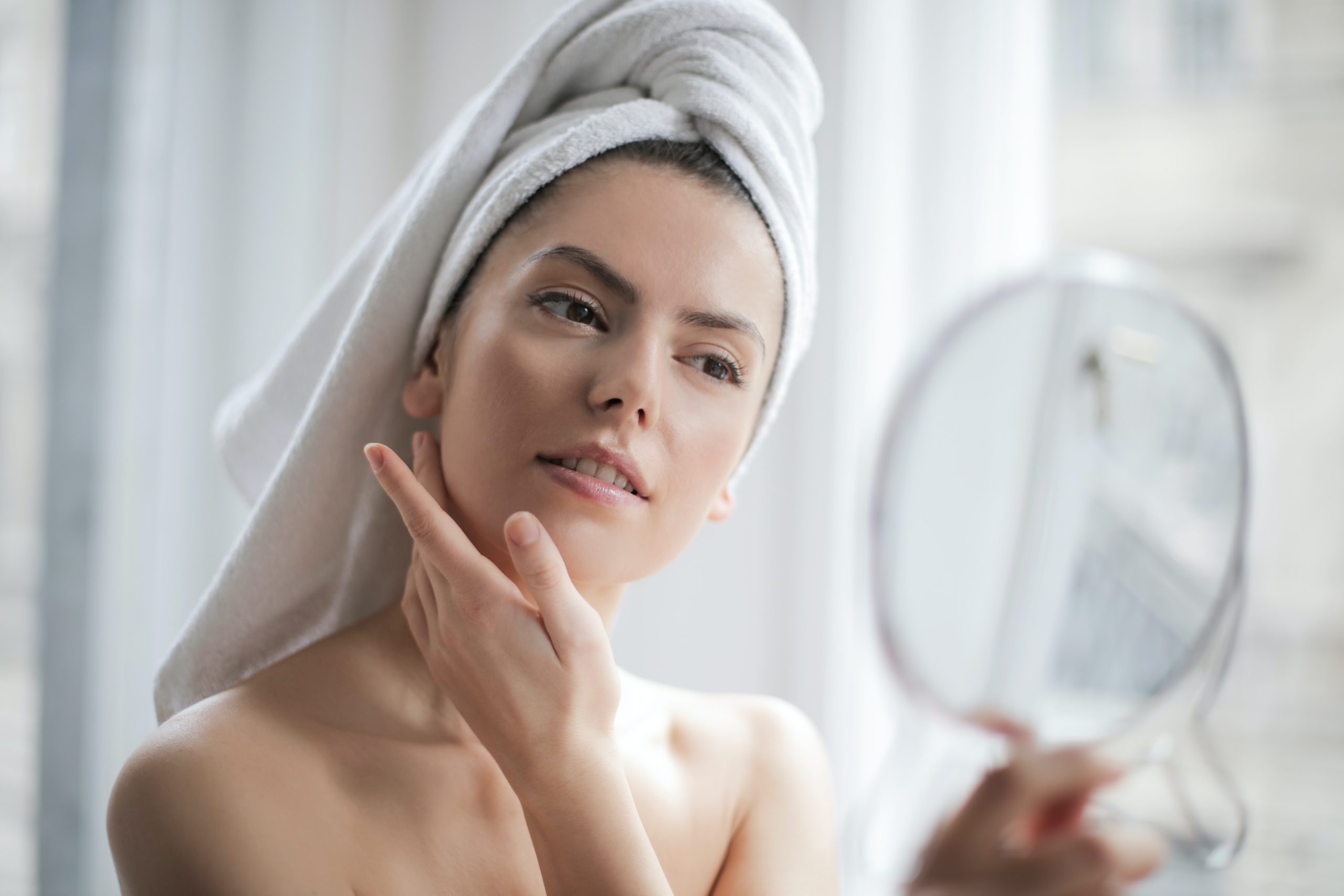We’ve all experienced those dreaded days when our skin seems to rebel against us, leaving us feeling frustrated and self-conscious. Yes, we’re talking about bad skincare days. These unwelcome surprises can throw us off balance and dent our self-esteem.
The good news is that with the right strategies and a little patience, you can regain control and restore your skin’s natural radiance.
In this comprehensive guide, we’ll learn how to deal with bad skincare days, empowering you to take charge of your skin and boost your confidence.
Understanding Bad Skincare Days

Before we embark on our journey to tackle bad skincare days head-on, it’s essential to understand their underlying causes and manifestations. Several factors can contribute to these challenging moments, such as environmental influences like harsh weather conditions and pollution.
Hormonal changes and lifestyle factors, including stress and poor dietary choices, can also wreak havoc on our skin. Bad skincare days often manifest as acne breakouts, dryness, oiliness, sensitivity, or redness.
Recognizing these signs and identifying potential triggers is the first step toward effective skincare management.
Strategies for Dealing with Bad Skincare Days
Assessing the situation
When faced with a bad skincare day, it’s crucial to assess the specific skin issue(s) you’re dealing with and identify potential triggers. Is it a sudden bout of acne or excessive dryness?
By understanding the problem, you can tailor your skincare routine accordingly. Keep a journal to track patterns and note any changes in your lifestyle or environment that might be influencing your skin’s behavior.
Adjusting skincare routine
Once you’ve identified the issue and possible triggers, it’s time to make adjustments to your skincare routine. Start with gentle cleansing using a mild cleanser suited to your skin type.
Avoid harsh exfoliants that can further irritate sensitive skin. Instead, opt for chemical exfoliants like alpha or beta hydroxy acids, which gently slough away dead skin cells.
Moisturizing
No matter what skin issue you’re facing, proper hydration is vital. Look for a moisturizer that matches your skin type and provides adequate nourishment.
For dry skin, opt for richer, emollient creams, while lightweight, oil-free formulas work best for oily or acne-prone skin. If sensitivity or redness is the concern, consider moisturizers with soothing ingredients like aloe vera or chamomile.
Treating specific issues
To combat acne breakouts, incorporate targeted treatments into your routine. Look for products containing ingredients like salicylic acid or benzoyl peroxide, known for their ability to fight acne-causing bacteria and reduce inflammation.
For dryness, add a hydrating serum or facial oil to provide an extra layer of moisture. When dealing with redness or sensitivity, seek products with anti-inflammatory properties, such as green tea extract or niacinamide.
Using lifestyle changes
Skincare is not just about what you apply to your skin; it’s also about your overall lifestyle. Making positive changes can have a profound impact on your skin’s health and appearance. Consider these lifestyle adjustments to enhance your skincare routine:
Diet and hydration
Opt for a balanced diet rich in fruits, vegetables, whole grains, and lean proteins. Stay hydrated by drinking an adequate amount of water throughout the day, as it helps maintain skin elasticity and flushes out toxins.
Stress management techniques
Stress can trigger or exacerbate skin issues. Incorporate stress management techniques like meditation, yoga, or deep breathing exercises into your daily routine. Engaging in activities you enjoy can also help reduce stress levels and promote overall well-being.
Sleep and exercise
Prioritize quality sleep as it allows your skin to repair and rejuvenate. Aim for 7-8 hours of uninterrupted sleep each night. Regular exercise improves blood circulation, which can enhance the delivery of nutrients to your skin cells and promote a healthy complexion.
Seeking professional advice
If you’ve tried various strategies and still struggle with bad skincare days, seeking professional advice can provide valuable insights and targeted solutions.
Consider scheduling a consultation with a dermatologist or esthetician who can assess your skin’s condition and recommend specialized treatments or prescription medications if necessary.
They can offer personalized advice based on your unique needs and help you navigate through challenging skin issues.
Maintaining a Consistent Skincare Routine

While dealing with bad skincare days, it’s crucial to establish and maintain a consistent skincare routine that caters to your skin’s needs. Here are some key habits to incorporate into your daily and weekly routines:
Cleansing
Cleanse your face twice a day, morning and night, using a gentle cleanser. Avoid over-cleansing or using harsh soaps that can strip away natural oils and disrupt the skin’s barrier.
Moisturizing
Apply a moisturizer suitable for your skin type immediately after cleansing to lock in hydration. Don’t forget to extend the moisturizer down to your neck and chest.
Sun protection
Protect your skin from harmful UV rays by applying a broad-spectrum sunscreen with an SPF of 30 or higher. Reapply every two hours, especially when spending prolonged periods outdoors.
Additionally, consider incorporating weekly or monthly skincare treatments to maintain healthy skin. These may include:
- Masks: Choose masks that address your concerns, such as hydrating masks for dry skin or clay masks for oily or acne-prone skin. Masks can provide a boost of nutrients and address specific issues.
- Exfoliation: Exfoliate your skin once or twice a week to remove dead skin cells and unclog pores. Use gentle exfoliants suitable for your skin types, such as scrubs, chemical exfoliants, or exfoliating brushes.
- Professional treatments: Schedule regular visits to a trusted esthetician for professional treatments like facials or chemical peels. These treatments can help address deeper skin issues and provide a rejuvenating experience.
Building Confidence and Self-Care Practices
Dealing with bad skincare days is not just about external solutions. It’s equally important to nurture your inner self and practice self-care to boost your confidence and embrace your unique beauty. Here are some practices to consider:
- Embracing imperfections: Remember that imperfections are a natural part of being human. Instead of fixating on flaws, focus on the things you love about yourself. Cultivate a positive self-image and practice body positivity.
- Managing unrealistic expectations: Avoid comparing yourself to unrealistic beauty standards portrayed in media. Embrace your own definition of beauty and prioritize your well-being over external validation.
- Seeking support from loved ones: Share your skincare journey and concerns with trusted friends or family members. Their support and understanding can significantly affect how you perceive and manage bad skincare days.
Conclusion
Dealing with bad skincare days can be challenging, but with the right strategies, a consistent skincare routine, and a dose of self-care, you can regain control and restore your skin’s health and radiance. Remember to assess your skin’s needs, make necessary adjustments to your routine, and incorporate lifestyle changes that promote overall well-being. Seek professional advice when needed, maintain a consistent skincare regimen, and embrace your unique beauty.
FAQs
1. Why am I experiencing bad skincare days?
Bad skincare days can occur due to various factors, including environmental influences like weather and pollution, hormonal changes, and lifestyle factors such as stress and poor dietary choices. Identifying the specific triggers can help you address and manage these issues effectively.
2. How long does it take to see improvements in my skin?
The time it takes to see improvements in your skin can vary depending on various factors, including the severity of the issue, your skincare routine, and your skin’s individual characteristics. Consistency is key, and it may take a few weeks or even months to notice significant changes. Patience is crucial, and remember that everyone’s skin is unique.
3. Can I use natural remedies to treat bad skincare days?
Natural remedies can complement your skincare routine, but it’s important to approach them with caution. While some natural ingredients may have beneficial properties, others can cause allergies or skin irritation. Research thoroughly, patch-test new ingredients, and consult with a dermatologist or esthetician before incorporating any new treatments into your routine.
4. How can I prevent bad skincare days in the future?
Preventing bad skincare days requires adopting a proactive approach. Maintain a consistent skincare routine tailored to your skin type, protect your skin from environmental stressors, eat a balanced diet, manage stress levels, and prioritize self-care practices. Regularly consult with skincare professionals to address any emerging issues and adjust your routine accordingly.



